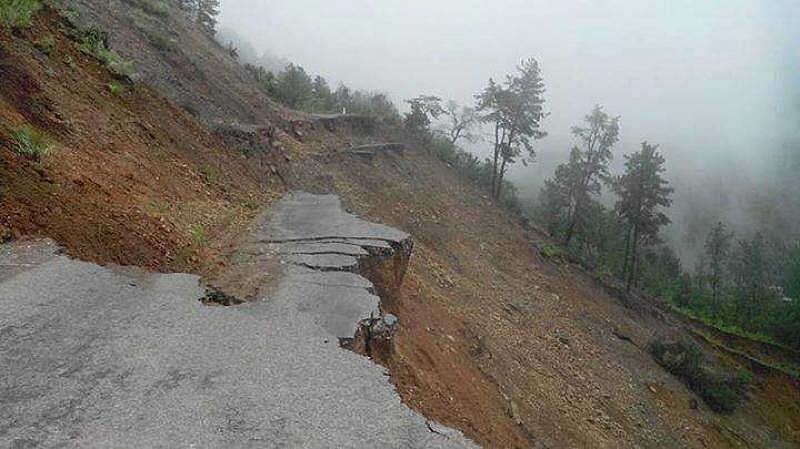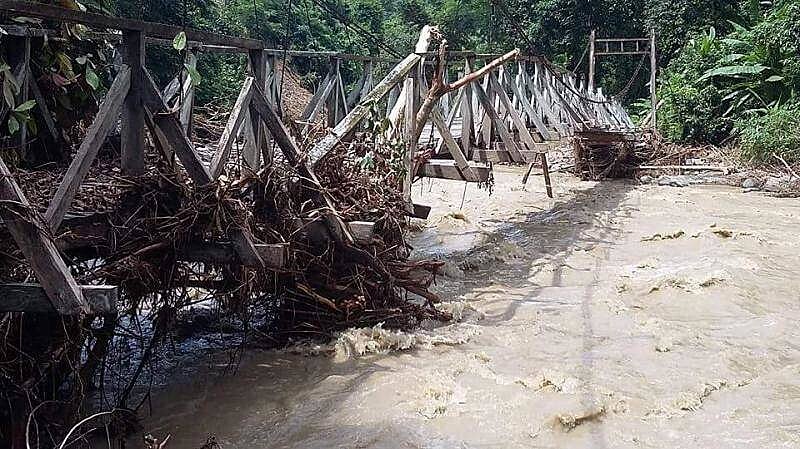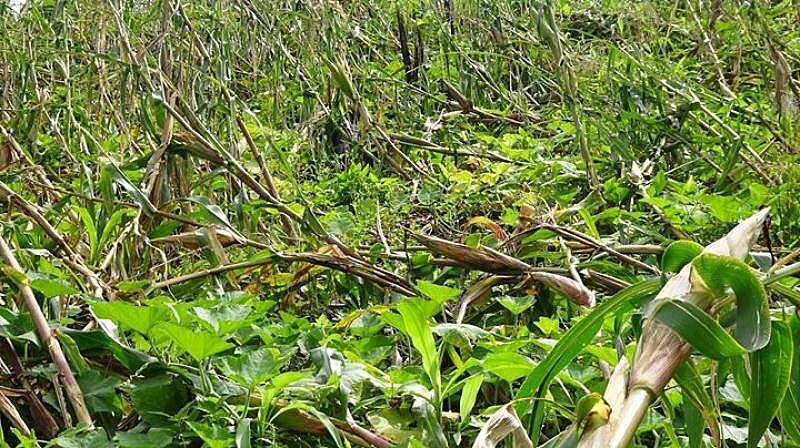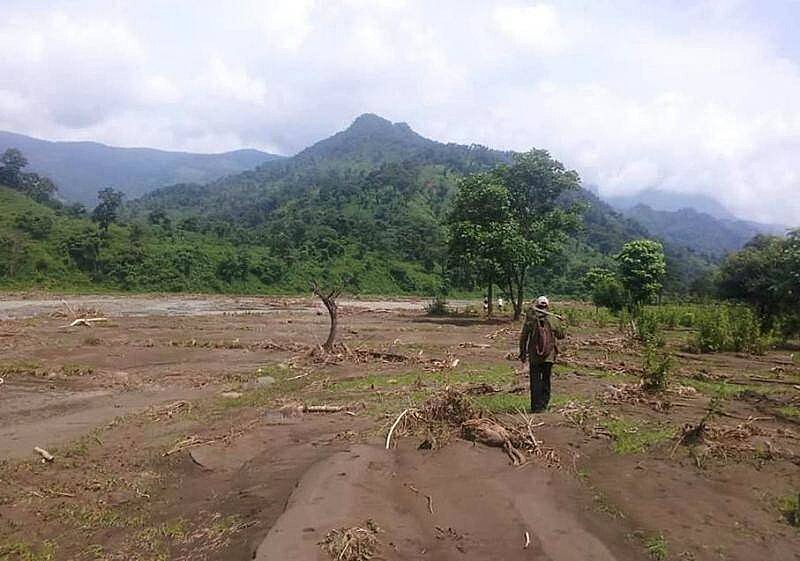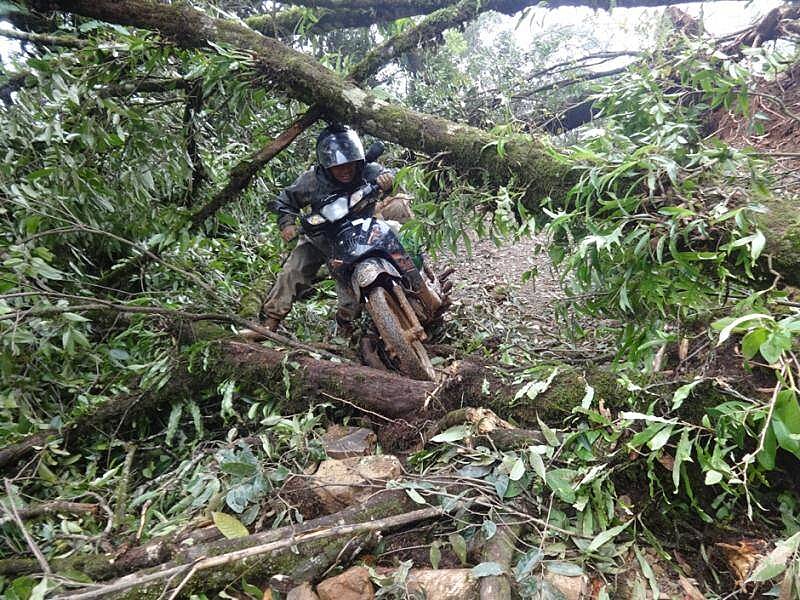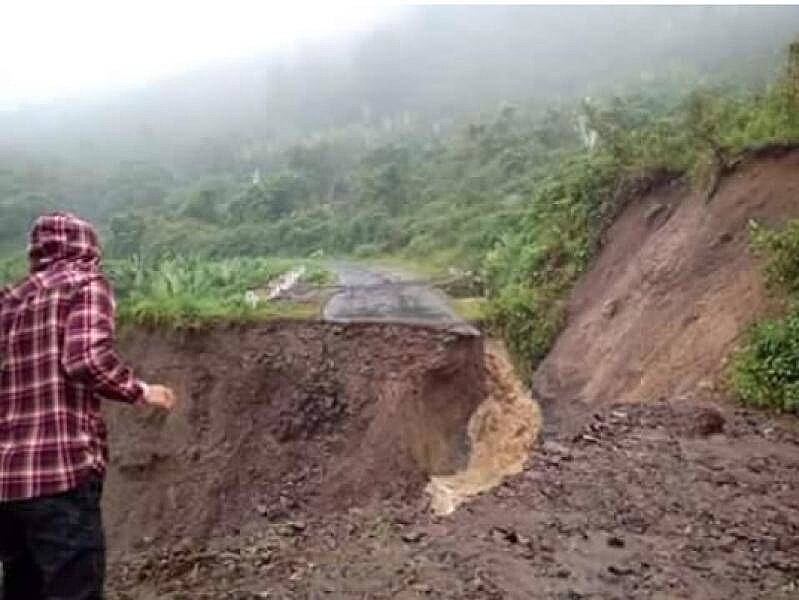Health and Hope Respond to Flooding in Burma
Posted on 21st August 2015 by Chris Jones
Recent flood waters have had a devastating impact on communities in both Chin and Rakhine States. One month before the rice was due to be harvested, crops have been destroyed, transport links have been washed away and many houses and buildings have been damaged.
In and around Lailenpi, roads and bridges that provided critical transport links to the border for food and supplies have been washed away in the floods, and paddy fields are covered with thick mud. For many of the villages where our Community Health Workers are based, there is an immediate and ongoing need for food assistance, due to the damage caused to agriculture and the loss of livestock.
Our Response
To date, international NGOs and foreign governments have given over $2.3 million of aid. However, only 435,000 people out of the 1.3 Million affected have received food supplies. Moreover, none of this support has been able, or indeed is likely to reach the areas served by Health and Hope.
We have therefore developed a response which is local and long term, focused on:
Phase 1: Providing emergency food aid to rural villages
This week we have been undertaking advocacy in Yangon, to make international agencies aware of the situation of villages in the remote rural areas of Chin and Rahkine States and encouraging them to direct aid to the most needy areas. However, our experience of large scale aid given by agencies during the Matwa Famine (2008-2013), was that their use of logistical routes from inside Yangon, left many villagers without support.
As such, in the last two weeks, Health and Hope have secured the support of the local government in Mizoram State of India, who have worked to rebuild roads to the Chin State border, enabling us to purchase and transport 1,500 bags of rice (weighing 50kg each) into the most affected regions.
Each bag of rice costs £20 to purchase and transport and provides enough food for a family of four to survive for one month. Working with our team on the ground and a support network of local churches and our established Community Health Workers, we are able to access villagers in the most remote areas. Can you help us to expand our response to reach more families in need?
Phase 2: Disaster Needs Assessment
Hand-in-hand with the Mara Evangelical Church and working as part of a consortium of local NGOs and Churches, we are undertaking a needs assessment over the coming 2-3 weeks, in order to gather data from the region. This will be collated and reviewed by our team in Yangon and a coordinated local response developed to address food insecurity, health needs and livelihood development.
Following the needs assessment, a third phase will be planned and communicated which will look at addressing the medium to long term needs of people in our homeland. We expect that the trust built with communities over the last seven years, and our network of over 900 Community Health Workers and Traditional Birth Attendants, will prove invaluable in reaching out to villagers affected by the flooding.
What can you do to help?
To help villagers affected by the flooding, please consider donating a one off or monthly gift via to directly support our ongoing and life saving work in the region.

